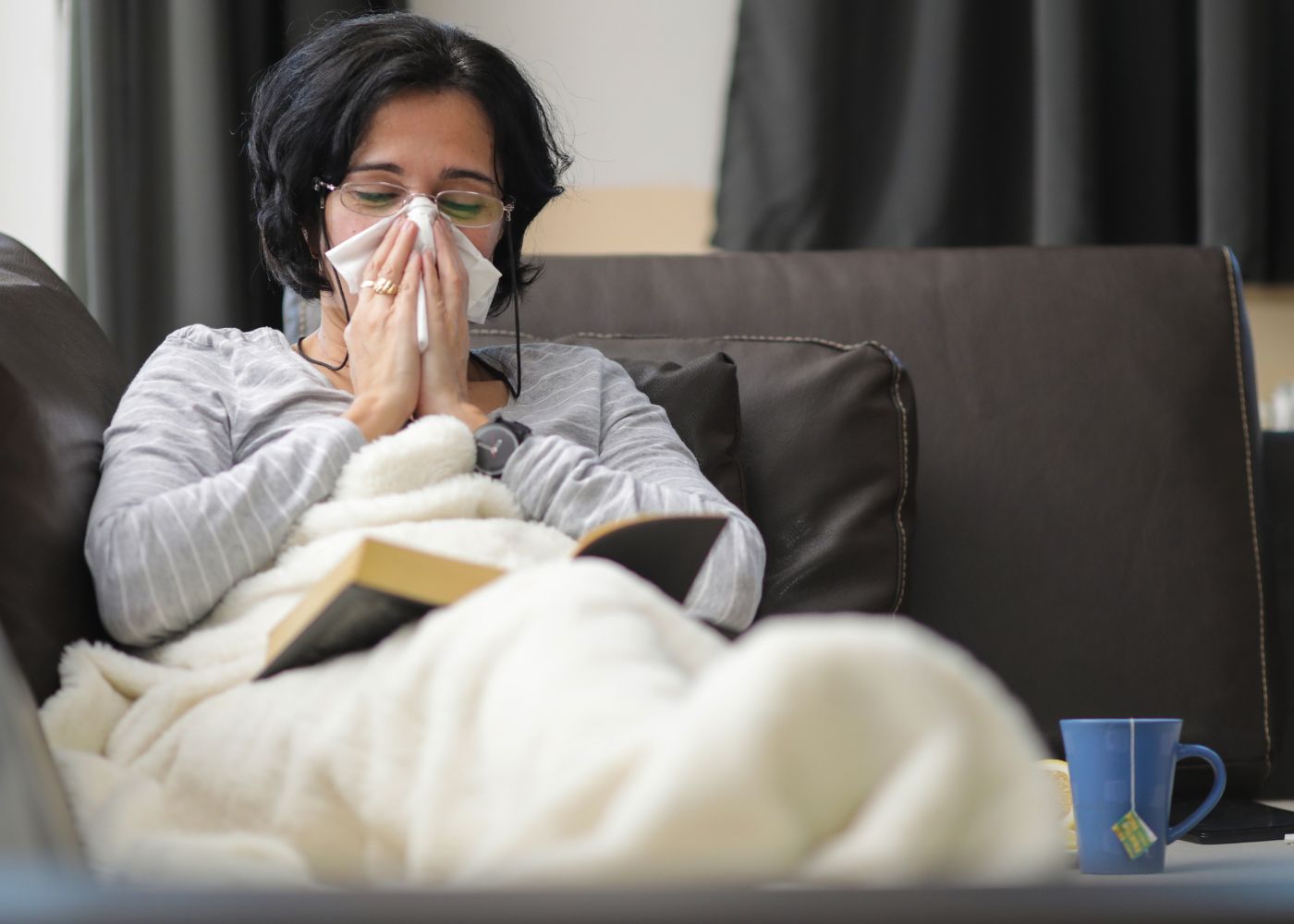Recovering from pneumonia is a unique challenge, often taking longer than the typical cold. While a cold primarily affects the upper respiratory tract, pneumonia impacts the lungs, a vital organ requiring significant time and care to heal fully. Pneumonia requires careful attention and a dedicated recovery plan to avoid potential setbacks. Let’s cover how long does pneumonia last compared to the common cold.
Pneumonia Recovery Explained
Recovering from pneumonia takes time because pneumonia is a complex infection that affects the lungs deeply.
Unlike a simple cold that mainly impacts the nose and throat, pneumonia reaches lung tissue, leading to inflammation and sometimes fluid buildup. This damage means that the lungs need extra time to heal, as they work to clear the infection, repair tissue, and restore normal function.
Additionally, pneumonia places a heavy strain on the immune system, weakening it and leaving the body more vulnerable to other infections. This added vulnerability makes it critical to allow adequate recovery time and avoid rushing back into daily activities too soon.
Key Takeaways for Pneumonia Recovery:
- Lung Impact: Pneumonia directly affects lung tissue, unlike a cold.
- Healing Needs: The lungs require more time for infection clearance and tissue repair.
- Immune Strain: Pneumonia weakens the immune system, so a slow return to activity is important.
Typical Stages of Pneumonia and Recovery Duration
Understanding the stages of pneumonia can provide insight into why recovery varies and why some individuals take longer to heal:
Early Stage (1–3 Days)
In the initial phase, symptoms often resemble those of a cold or flu, with coughing, mild fever, and fatigue. This stage may last a few days, during which the infection establishes itself in the lungs.
Recovery starts with proper rest, hydration, and possibly antibiotics if prescribed.
Acute Stage (4–7 Days)
During this critical stage, symptoms intensify. Patients may experience high fever, persistent cough, chest pain, and difficulty breathing. The body is actively fighting the infection, placing strain on the immune system.
In cases where symptoms worsen or don’t respond to treatment, an X-ray can provide insight into lung condition and guide further care. This stage may last up to a week or more, depending on the severity and response to treatment.
Recovery Stage (2–6 Weeks)
As symptoms improve, the body begins to heal. However, fatigue and a lingering cough can persist for weeks, even after other symptoms have resolved.
This phase requires ongoing rest and gradual return to regular activities to prevent relapse.
Common Setbacks in Pneumonia Recovery
Recovery from pneumonia can be challenging, as complications and setbacks are not uncommon. Here are a few of the main obstacles patients might face:
-
Relapse After Antibiotics
Sometimes, symptoms return after completing a course of antibiotics. This can happen when patients stop medication too early or resume regular activities too quickly, which can strain a still-recovering immune system.
Relapses often require further treatment and additional rest to prevent worsening symptoms.
-
Recurring Pneumonia
For some individuals, pneumonia may reoccur, especially if the immune system was weakened before the initial infection.
Recurrence can be more serious, underscoring the importance of following a doctor’s care plan closely and taking adequate time for recovery.
To support long-term healing, it’s essential to adhere strictly to prescribed medications and avoid rushing back into everyday routines. Full recovery is only possible with ample rest and careful monitoring.
Tips for a Speedy and Safe Recovery
To promote a safe and complete recovery from pneumonia, consider these practical tips:
- Rest: Give your body the time it needs to heal. Avoid strenuous activities, even when symptoms improve.
- Nutrition: Support your immune system with nutrient-rich foods that promote healing.
- Hydration: Stay hydrated to help thin mucus and ease breathing.
- Avoid Smoke: Steer clear of smoking and other lung irritants that can delay recovery.
- Follow Medication Instructions: Complete the full course of antibiotics if prescribed to prevent relapse.
- Regular Check-ups: Attend follow-up appointments to monitor recovery progress.
When to Seek Urgent Care
While pneumonia recovery can take weeks, certain symptoms warrant immediate attention. Seek urgent care if:
- Fever returns or intensifies after initial improvement
- Difficulty breathing worsens or chest pain becomes severe
- New symptoms emerge, such as confusion or a sharp decline in energy
In cases of severe symptoms, knowing when an X-ray is necessary can help detect any underlying complications or monitor lung healing progress. Understanding the signs that indicate a need for urgent care can prevent severe complications and support a full recovery.
If you or a loved one are experiencing any concerning symptoms, find an urgent care center near you to get the timely care you need.

